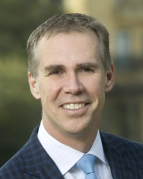Tesla notched a trifecta of (legal) headlines this week, with three inter-related developments coming out of the shareholder challenge to the firm’s 2016 purchase of SolarCity: a settlement, a summary judgment decision, and an almost-certain trial featuring testimony by none other than Elon Musk. When originally announced, Tesla’s $2.6 billion acquisition of SolarCity was hailed as a “no brainer,” and it was eventually approved by a majority of Tesla’s independent shareholders. That said, it was Musk himself who was doing much of the aforementioned hailing – and observers couldn’t help but take note of the appreciable ownership stake he held in both companies (just north of 20 percent for each). Moreover, according to the shareholder plaintiffs, several attributes of the deal – purportedly known to Musk and the Tesla board yet not disclosed to stockholders – made the purchase far less attractive than advertised. The shareholder complaint thusly delivered a pastiche of allegations that included corporate waste, pre-vote disclosure defects, and breaches of fiduciary duty. Having survived a motion to dismiss back in 2018, the case was primed for a more sweeping skirmish featuring dueling summary judgment motions from each side pending before the Delaware Chancery Court.
But before Vice Chancellor Slights could deliver his opinion, six Tesla director defendants unexpectedly settled earlier this week, for a not-insubstantial $60 million (bankrolled largely by insurance policies). Their sudden departure left Musk alone in the spotlight as the sole remaining defendant in the case (though he had always been the central figure in the dispute). On Tuesday, the vice chancellor finally delivered his opinion, denying the majority of both sides’ summary judgment motions.
The dueling motions raised a variety of points of contention between the parties that are not unfamiliar to corporate litigators. The first is whether Musk’s share ownership in Tesla, and his well-recognized reputation as a hands-on CEO, are enough to elevate him to the category of a “controlling shareholder” under Delaware law. Although his ownership block of the company (22.1 percent) falls far short of a juggernaut, Delaware courts have grown accustomed to finding the existence of a controller when “a combination of potent voting power and management control” give a stockholder “effective control of the board without actually owning a majority of stock.” (And prior Delaware opinions have held that controlling shareholders can be present with blocks that fall even below the 20-percent threshold). The opinion goes out of its way not to make a final determination of controlling status, but because of the posture of the case, much of the court’s analysis is predicated on an assumption that Musk will be found to be a controller. This issue is likely to be the litigation linchpin for both sides.
And why’s that? This brings us to the second (and most novel) part of the opinion. As most corporate law junkies are well aware, Delaware’s fiduciary law has long applied special scrutiny to conflicts of interest involving controllers, historically applying the doctrine of inherent coercion first established by Delaware Supreme Court in 1994, which mandates a rigorous “entire fairness” standard of review (rather than the nearly unbreakable shield of the business judgment rule, or “BJR”). While this approach remains in place as a general matter, controllers scored a major victory in the 2014 case of Kahn v. M&F Worldwide, which permitted a BJR standard of review for conflicted-controller transactions that undergo dual cleansing approval votes of disinterested stockholders and disinterested directors.
The Tesla purchase decision jumped through the first of these cleansing hoops, but not the second. Nevertheless, the defendants advanced a novel claim here that Musk’s conflict should be accorded BJR deference anyway. Their argument went something like this: Even if Musk is shown to be a controlling shareholder, it need not follow – and plaintiffs have not offered any proof – that he actually coerced other shareholders into casting their ratifying votes. Absent such proof, defendants maintained, a disinterested stockholder vote should be sufficient alone to cleanse a conflicted-controller transaction, reinstating the BJR’s nearly unbreakable shield. From a higher-altitude perspective, the defendant’s theory gave the court an invitation to innovate further in the area of fiduciary-duty cleansing jurisprudence – a trend that has been underway for a good part of the last decade, with Delaware courts according increasing solicitude to the vote of disinterested shareholders. But, as Mr. Musk recently discovered, seemingly unbreakable shields have tendency to fail at the darnedest, most inconvenient times. And Vice Chancellor Slights stuck to his jurisprudential knitting, declining defendants’ invitation and siding with a long line of precedent in holding that if Musk is shown to be a controller (and in the absence of dual MFW-like protections), the implied coercion doctrine remains in play and an entire-fairness standard of review follows. While it remains true that a shareholder cleansing vote can flip the burden of proof, it does not provide safe passage out of the entire-fairness forest.
And that brings us to the third point: the shareholder vote itself – which will still play an important role in the case. For it, too, remains a cliffhanger. Granting a minor victory to the defendants, Vice Chancellor Slights rejected two disclosure defects asserted by the plaintiffs. First, he held that valuation disclosures must only explain general methodology – in this case pertaining to growth rate assumptions about SolarCity’s investment tax credits. Such financial disclosures are not required to be so granular to permit replication so long as they communicate the key underlying assumptions that provide the basis of an investment bank’s opinion. Next, the court held that statements regarding expected financial impact of the merger on Tesla and projected SolarCity cashflows were adequately described and appropriately qualified in the proxy materials. Nevertheless, Vice Chancellor Slights left for trial a series of questions regarding the adequacy of disclosure to shareholders. These include:
- SolarCity’s financial situation, which the plaintiffs refer to as a “liquidity crisis” due no outside financing and dwindling cash in the face of mounting obligations;
- Musk’s actual involvement in light of strategic recusal disclosure, conjuring up once again the central question of the case;
- Musk’s protestations of ignorance about the deal (e.g., statements such as, “You know about as much as I do”) in the face of what the plaintiffs allege to be significant undisclosed involvement; and
- Musk’s overly sanguine statements about SolarCity’s roof product viability and timelines.
Not only will these issues survive to trial, but they will become crucial in determining whether the Tesla stockholder vote has any protective effect (both to flip the entire-fairness burden and to protect against the alleged claims of corporate waste, which the court also kept alive).
Last but not least, and notwithstanding the last-minute settlement discussed above, the court tackled the plaintiffs’ allegations that the Tesla board was not disinterested and independent in their evaluation of the deal. Of the seven Tesla directors, two recused themselves (Elon Musk and Antonio Gracias), and a third, Kimbal Musk, was conceded by Tesla to be conflicted. As to the others, Vice Chancellor Slights provided a jurisprudential counterpoint to Vice Chancellor Glasscock’s “friends with benefits” analysis in the recent Oracle case, declaring that mere compensation and asserted associations among board members amount to little more than “threadbare” factual assertions of director conflict that raise no material questions of facts. Nevertheless, important questions of fact remain regarding directorial conflicts:
- Indirect investment conflicts: Two directors are dual fiduciaries with obligations running to non-Tesla shareholders because of personal investments (and those of their affiliated venture firms) in SpaceX, SolarCity’s prior parent company also created by Musk. Vice Chancellor Slights, however, reserved the question of whether Tesla, SpaceX, and the venture firms’ interests, in fact, conflicted; and
- Direct investment conflicts. A third director in question had invested heavily in SolarCity, but the Court held that his overall wealth and even larger investment in Tesla cast doubt on the material importance of the investment sufficient to influence his fiduciary duty owed to Tesla shareholders.
So where does all of this leave us? Back in Vice Chancellor Slights’ courtroom of course, where the parties appear destined to litigate the issues detailed above. The vice chancellor’s opinion largely (and appropriately, in our view) hews to longstanding precedent in Delaware, even as it observes that the inherent coercion doctrine for controllers is not without its critics. It is possible (either soon or down the road) that the Delaware Supreme Court may get in on the action, perhaps opting to revisit the doctrine, and whether plaintiffs must affirmatively prove actual coercion in trial (or alternatively, defendants will be allowed to disprove it). The case also reminds us that controlling shareholder issues continue to have staying power in Delaware, where the courts are not bashful about finding a controller even when block ownership falls far short of a majority. (Indeed, this reminder is one that Musk himself has now received at least twice in less than a year.) Finally, even as the case moves forward under the entire-fairness standard, interesting issues remain about whether Musk’s approximately equivalent ownership stakes in each company may help to deflect allegations that his conflict of interest was material enough to matter. Barring another settlement, one thing seems certain: There are more jurisprudential chapters of the Tesla-SolarCity saga left to write.
This post comes to us from Eric Talley, the Isidor & Seville Sulzbacher Professor of Law at Columbia Law School; Professor Ann M. Tucker at Georgia State College of Law; and Jamie Brumberger, a JD/MBA candidate at Columbia Law School and Columbia Business School.
 Sky Blog
Sky Blog


